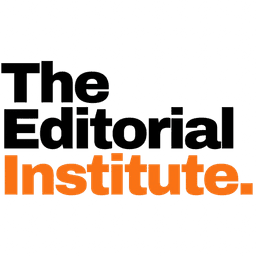Healthcare took a drastic turn in recent years, with the ever growing technology, driving countless new opportunities. This turn will continue into 2025, witnessing a wider range of advancements that leads to revolutionization of the healthcare economy, making it more accessible, personalised and sustainable. Here, personalized healthcare means more than just precision medicine. By tapping onto one of the significant trends, such as- AI and Machine Learning to develop diagnostics, smoothening operations and providing predictive analytics which leads to prevent diseases at an earlier stage and can forecast patient outcome. These innovations not only modify how healthcare service has been delivered but also affect the economic landscape wider.
Trends In Health Economy
Artificial Intelligence-
AI positively impacts the healthcare sector by smoothening the administrative tasks, enabling predictive analytics and enhancing diagnostics and it will likely improve the availability of AI-based applications by simplifying their use and analysis. It will help the healthcare professionals to identify the disease at an earlier stage and gives an idea to prescribe the personalized medicines to the patients. Virtual Assistance tool as well gaining traction in offering personalised guidance and reducing the workload for medical staff.
An AI powered platform “ Aidoc” used in the analyzing of medical imaging like CT Scans and identifies the serious disorders like Spine Fractures, pulmonary embolisms, and brain hemorrhages. By flagging urgent cases, this tool assists radiologists to treat patients faster delivering better results.
Telemedicine And Virtual Care-
Since the pandemic hit, telemedicine has taken a massive surge, and still its growth continues in 2025. Real-time health tracking is made possible by telehealth platforms combining wearable technology and remote monitoring technologies. It incorporates various IoMT devices to manage patients' health remotely and offers smooth communication for medical professionals and real time data collection, bridging geographical barriers and increasing convenience.
A leading healthcare platform “ Teladoc Health” saw a spike in demand during the pandemic and its expansion continues in 2025. In order to manage chronic conditions such as diabetics, and hypertension this company has merged Livongo’s remote monitoring tools with wearable technology like the Fitbit and Apple watch.
Blockchain-
Blockchain has become the major factor to secure healthcare data management, as concerns are increasing regarding the data privacy. It ensures that only guaranteed parties can authorize the patients data. Clinical trials are also using blockchain to preserve credibility and transparency. By providing more safe, effective, and perceptive data management techniques to solve urgent concerns regarding privacy and trust in the handling of patient information, big data and block chain breakthroughs have the potential to completely revolutionize healthcare in 2025.
A Pharmaceutical supply chain platform, “MediLedger” helps to secure the patients records and can be shared across healthcare professionals while maintaining privacy. During Covid-19 MediLedger helped the professionals by securely tracking vaccine distribution and patients immunization records.
Automation & Robotics-
As healthcare is revolutionizing step-by-step, new innovations are taking birth to simplify the healthcare professionals work and improve convenience. Healthcare revolutions like robotic surgeries are becoming a talk across the world. Imagine, robots are assisting in precision surgeries, elder care, and even doing repetitive tasks like sterilization. These innovations increase outcomes while reducing costs and human errors.
“Da Vinci Surgical System” allows surgeons to perform complex procedures with enhanced accuracy, flexibility and control. It’s frequently used in urologic and gynecologic surgeries, where precise motions and tiny incisions are essential. By improving patients' outcomes and reducing human error, the robotic arms translate surgeons hands into smaller, more accurate actions.
Pharmacogenomics-
Pharmacogenomics is a study to know how an individual's DNA is reacting to drugs. It took personalized medicines a step further, by customizing the drugs based on the patient's genetic information. This field is making significant progress in treating conditions like cancer, and uncommon genetic disorders, improving patients' outcomes significantly. It helps the healthcare professionals to understand how an individual’s genetics reacts to their drugs and accordingly, it helps the doctors to prescribe the right drug at the right dose, which leads to reduced drug reactions and enhances treatment efficacy.
When prescribing antidepressants like “Warfarin cytochrome P450 (CYP450)” genetic tests are used. Variants in CYP450 genes affect how individuals metabolise these drugs. Patients with particular genetic profiles may metabolize Warfarin too quickly, decreasing the medications effectiveness, or increasing the risk of bleeding. Doctors can optimize the treatment outcomes and lower risks by personalizing the medicine dosage by examining these genetic markers.
Customer-Centric Healthcare-
From managing chronic diseases to providing mental health advice, healthcare startups are transforming the healthcare sector with innovative & creative solutions. Technologies like wearable healthcare devices and lifestyle platforms prioritize preventive healthcare which enables the people to monitor their health in a proactive manner regularly, which enhances personal well being and also reduces the pressure on healthcare systems. The increase in investments on these platforms accelare the transition from reactive to preventive healthcare. Patients are more involved and take control of their health whey they have access to health data.
“Fitbit Health Solutions” helps the users to track their heart rate, sleep patterns, and physical activity, also integrated with mental health support through mindfulness features and stress management tools.
Sustainability In Healthcare-
Green hospitals are paving a way for eco-friendly designs and energy-efficient technologies that lower carbon emissions while fostering a healthier atmosphere for both patients and staff. With hospitals aiming for “Zero- Waste management, innovations in medical waste management are tackling important sustainability issues. However, pharmaceutical companies are focusing on reducing emissions during clinical trials and focusing on sustainable sourcing of raw materials. These practices align with global sustainability goals and ensure ethical practices in drug development.
Through the environmental friendly programs “Mayo Clinic” in Rochester is actively working on reducing carbon emissions through several eco-friendly initiatives. In order to achieve “Zero emission status” it has adopted energy efficient technologies like geothermal heating and cooling systems.
Challenges In Health Economy-
Data-Privacy Concerns-
As healthcare embraces digital transformation, the challenges regarding data privacy increases. It’s a preliminary task to keep the patients data secure but due to lack of data protection, there are high chances of likely leak or stolen data by the hackers. Regulatory frameworks are evolving to address these concerns while promoting innovation.
Inequalities In Health Care-
Despite advancements, inequalities in healthcare have risen. Ensuring equitable distribution of technologies and resources has become challenging. Marginalized communities still face healthcare barriers towards cost, location and cultural factors. Addressing these concerns should require the collaboration between governments, healthcare providers and organizations to create inclusive healthcare policies.
Ethical Use Of AI-
Usage of AI should be ethical, to provide fair access to healthcare. AI algorithms must be open and impartial. For AI- driven medical judgements to continue to to be trusted and accountable, clear ethical standards are required. These guidelines support equity in AI results, avoid discrimination and protect patients privacy.
Conclusion-
From the last few years, the healthcare economy has taken a drastic transformation. The trends like AI & Machine Learning, robotic surgeries, telemedicines, sustainable healthcare are shaping a future . However there are few challenges we are addressing in healthcare such as data privacy concerns and inequalities in healthcare are equally important to consider. Collaborative approach between government, stakeholders, healthcare providers brings a change and creates a healthier and more equitable world for all.





